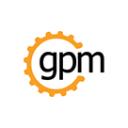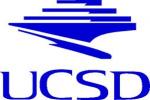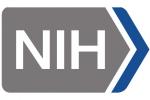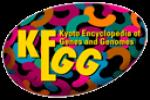NOVELTIES
PeptideAtlas is a multi-organism, publicly accessible compendium of peptides identified in a large set of tandem mass spectrometry proteomics experiments. Mass spectrometer output files are collected for human, mouse, yeast, and several other organisms, and searched using the latest search engines and protein sequences. Registration not required.
Click here for more informationsPublished on 2011-05-04 05:33:54
Compute pI/Mw is a tool which allows the computation of the theoretical pI (isoelectric point) and Mw (molecular weight) for a list of Swiss-Prot entries or for a user entered sequence of aminoacids. The resulting theoretical values check the consistency of the position on a 2D PAGE gel of the identified and unmodified proteins. Registration not required.
Click here for more informationsPublished on 2011-05-04 04:43:58
Proteomics tools for mining sequence databases in conjunction with mass spectrometry experiments. Registration not required.
Click here for more informationsPublished on 2011-05-03 12:09:00
X!Tandem is a very fast seach engine which searches for matches of MS/MS spectra to a protein database. X!Tandem is free to use on the web or to download. X!Tandem works in conjunction with thegpm.org and can take advantage of the information gleaned from previous searches. It has an option, PPP, which searches first only the peptides that have been found most frequently for each protein Registration not required.
Click here for more informationsPublished on 2011-05-03 12:07:36

Add to my favorites
Remove from my favorites
From Institute of Systems Biology
Category: Proteomics data analysis
The standard MS/MS experiment starts by digesting the proteins into peptides with an enzyme such as trypsin. USe Protein Digestor to see what peptides will result from digesting a protein. Registration not required.
Click here for more informationsPublished on 2011-05-03 12:06:51
PepNovo is a high throughput de novo peptide sequencing tool for tandem mass spectrometry data. PepNovo typically runs in less than 0.2 seconds per spectrum. PepNovo uses a probabilistic network to model the peptide fragmentation events in a mass spectrometer. Registration not required.
Click here for more informationsPublished on 2011-05-03 11:33:41
Browse the Web's Largest Acronyms & Abbreviations Resource Registration not required.
Click here for more informationsPublished on 2011-05-03 09:40:57
Pathway Commons is a convenient point of access to biological pathway information collected from public pathway databases (EG Cerami et al., Nucleic Acid Res 39, D685, 2011) Registration not required.
Click here for more informationsPublished on 2011-05-02 09:50:26
PubChem (NCBI) provides information on the biological activities of small molecules. It is a component of NIH's Molecular Libraries Roadmap Initiative. PubChem includes substance information, compound structures, and BioActivity data in three primary databases, Pcsubstance, Pccompound, and PCBioAssay, respectively. The Substance/Compound database, where possible, provides links to BioAssay description, literature, references, and assay data points. The BioAssay database also includes links back to the Substance/Compound database. PubChem is integrated with Entrez, NCBI's primary search engine, and also provides compound neighboring, sub/superstructure, similarity structure, BioActivity data, and other searching features. PubChem contains substance and BioAssay information from a multitude of depositors. Registration not required.
Click here for more informationsPublished on 2011-05-02 07:43:15
eMolecules is a chemical structure search engine that links also to suppliers. The standard search allows querying for names, substructures, and suppliers. Registration not required.
Click here for more informationsPublished on 2011-05-02 07:42:19
ChemSpider is a free-to-access collection of compound data from across the web, that offers text and structure searching to find compounds of interest and provides unique services to improve this data by curation and annotation and to integrate it with users’ applications. Registration not required.
Click here for more informationsPublished on 2011-05-02 07:40:08
The Common Fund's Genotype-Tissue Expression (GTEx) program aims to map all sites in the human genome where sequence variation quantitatively affects gene expression and regulation in multiple tissues, providing valuable insights into the mechanisms of gene regulation and its disease-related perturbations. Registration not required.
Click here for more informationsPublished on 2011-05-01 14:49:52
The Allen Mouse Brain Atlas is a comprehensive genome-wide map of the adult mouse brain revealing where each gene is expressed, or “turned on. A combination of RNA in situ hybridization data, detailed Reference Atlases and informatics analysis tools are integrated to provide a searchable digital atlas of gene expression. Together, these resources present a comprehensive online platform for exploration of the brain at the cellular and molecular level. Registration not required.
Click here for more informationsPublished on 2011-05-01 14:42:45
The Argo Genome Browser is the Broad Institute's production tool for visualizing and manually annotating whole genomes. It's a free and open source standalone Java 1.4 application. Registration not required.
Click here for more informationsPublished on 2011-05-01 13:41:58
The EST database (NCBI) is a collection of short single-read transcript sequences from GenBank. These sequences provide a resource to evaluate gene expression, find potential variation, and annotate genes. Registration not required.
Click here for more informationsPublished on 2011-05-01 13:36:27
HERVd (Human Endogenous Retrovirus DB) is a database compiled from the human genome nucleotide sequences obtained mostly in the Human Genome Projects. It is a relatively simple and fast environment for screening human genome for endogenous retrovirus. Registration not required.
Click here for more informationsPublished on 2011-05-01 05:13:37
PhosphoSitePlus® (PSP) is an online systems biology resource providing comprehensive information and tools for the study of protein post-translational modifications (PTMs). In addition to providing an extensive, manually curated phosphorylation site database, other commonly studied PTMs are included in PSP. Registration not required.
Click here for more informationsPublished on 2011-04-27 04:09:49

Add to my favorites
Remove from my favorites
Scripps Metabolomics Platform
Category: Other software
Subcategories: Metabolomics
The XCMS software for metatabolomic and lipidomic reads and processes LC/MS data stored in netcdf , mzXML, mzData and mzML files. It provides methods for feature detection, non-linear retention time alignment, visualization, relative quantization and statistics. XCMS is capable of simultaneously preprocessing, analyzing, and visualizing the raw data from hundreds of samples. Registration not required.
Click here for more informationsPublished on 2011-04-26 08:07:05
KEGG Pathway is a collection of manually drawn pathway maps (see new maps, change history, and last updates) representing our knowledge on the molecular interaction and reaction networks. Pathway entries are text representation of pathway maps, containing descriptions (for a limited number of entries, at the moment). KEGG PATHWAY mapping is the process to map molecular datasets, especially large-scale datasets in genomics, transcriptomics, proteomics, and metabolomics, to the KEGG pathway maps for biological interpretaion of higher-level systemic functions. Registration not required.
Click here for more informationsPublished on 2011-04-16 23:53:12
The ProMAT (Protein Microarray Analysis Tool) is a data analysis application for protein microarray data. The software was developed for use with ELISA microarray experimental data by the Statistics Group and the Cell Biology and Biochemistry Group at Pacific Northwest National Laboratory. Registration required.
Click here for more informationsPublished on 2011-04-15 14:46:35



















